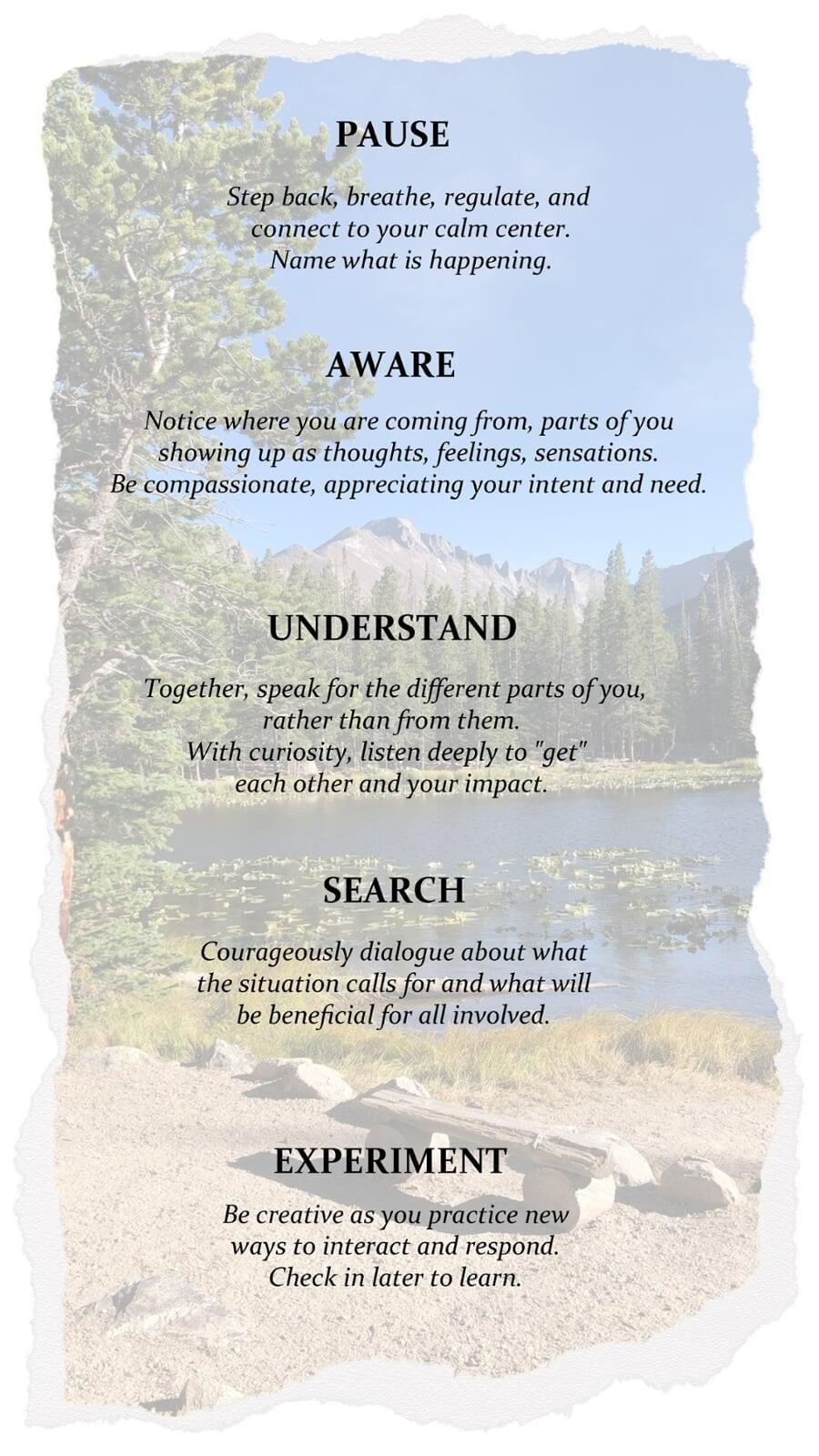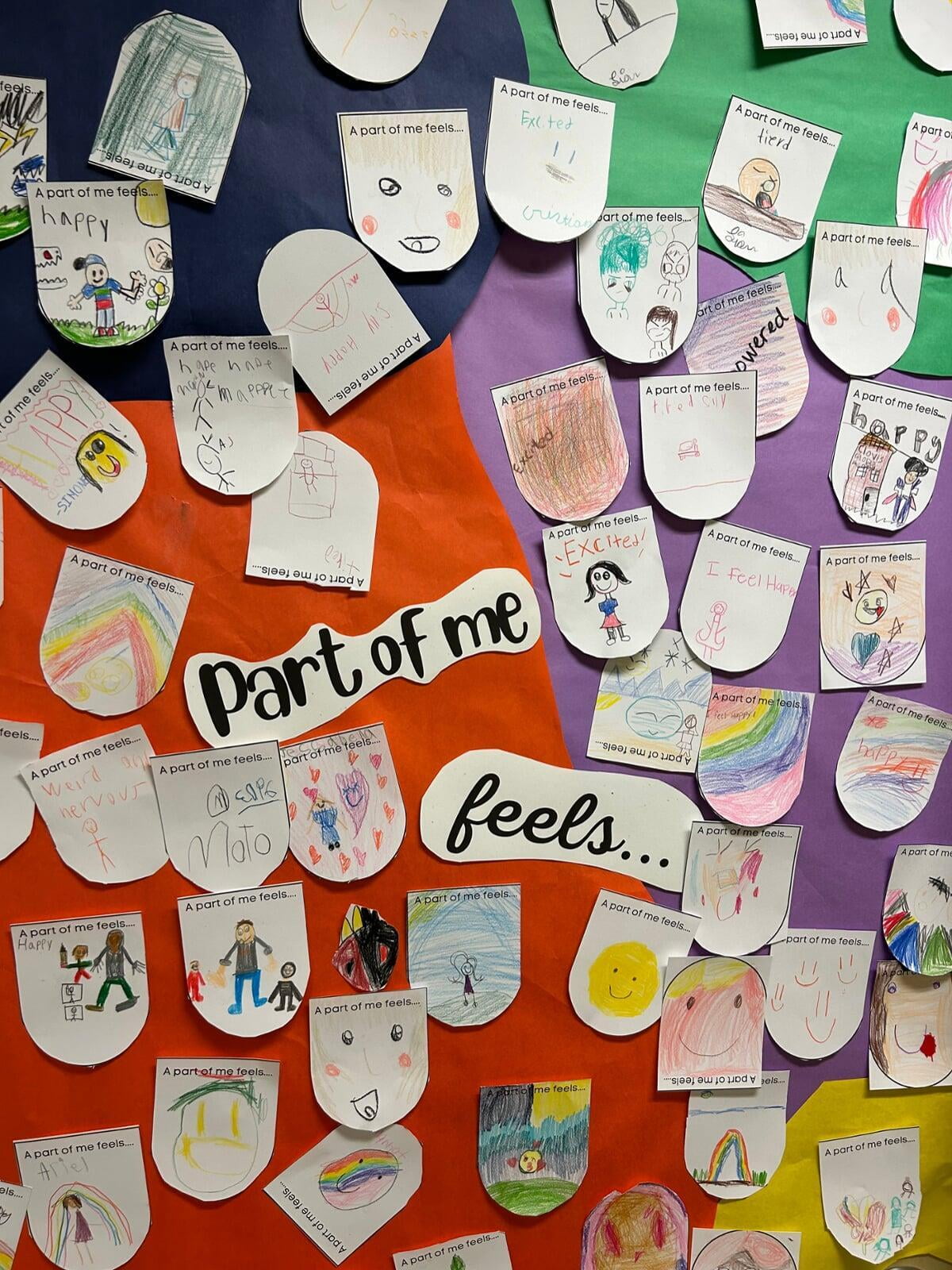Philosophy & Practice of Self-Leadership

The Self-Leadership Collaborative approach for social and emotional well-being promotes positive engagement in learning by supporting students and adults alike to appreciate that we can practice and learn to operate from “Self-Leadership.” Self-Leadership refers to when we are functioning with “whole brain” thinking, bringing our innate calm, clarity, creativity and confidence to our activities, as well as compassion, curiosity and courage into our connections with others. In this way we lead from our true or best “Self.” This model facilitates the cultivation of a growth mindset, resilience and a mindful way of being such that we can integrate it into the fabric of our everyday lives when “the rubber meets the road.” The framework provides the knowledge and tools to access and operate from Self-Leadership, which is essential for learners and educators to function optimally in the learning environment and perform to their greatest potential.
The understanding of Self-Leadership is drawn from Internal Family Systems (IFS) developed by Dr. Richard Schwartz. Internal Family Systems (IFS) is cutting edge, evidence-based and renowned in the field of psychotherapy for introducing ground-breaking approaches for healing trauma and other mental health diagnosis. This model offers a non-pathologizing and integrative framework to understand and cultivate social and emotional well-being.
IFS also provides a revolutionary approach to what “blocks” our ability to access and lead from our best Self. We all have moments when we might say “I wasn’t myself,” or “Why did I do that when I intended the opposite?”, “What are these emotions overtaking me?”, “I wasn’t in a good frame of mind.” IFS understands that we all have different sides of ourselves , referred to as “parts” that get activated in different situations. When our “buttons get pushed,” sometimes certain parts of us have an extreme reaction and take over, perhaps acting disproportional to the situation. This can show up as strong emotions (fear, anger, etc.), it can show as certain thought patterns (“I can’t do this,” “I’m not good enough,” “Why bother,” etc.), and it can show as physical responses and behaviors (fight , flight or freeze response, “losing it,” “shutting down,” being disruptive, inappropriate, disrespectful, etc.) So often it is these responses that seem to hijack our students and take them offline, rendering them unavailable for learning and often disruptive to others’ learning experience.
IFS is unique in helping us work with these extreme responses. Where many models focus on managing, reducing or replacing these “negative” responses, IFS helps us understand the underlying source and function of these response patterns so we find and address the true root cause. In doing so, we can develop self-awareness and a healthy internal relationship with ourselves. Ultimately, IFS helps us to better know how our different parts operate in varying circumstances and to become conscious of what “drives” us. It helps us to better know ourselves so that we can more effectively regulate our responses and engage deliberately.
In so many professional domains (education, psychotherapy, business, medicine, with veterans, addiction treatment, eating disorders, etc.), IFS is building on previous models and being taken to a new and lasting level. Simply put, this model offers foundational wisdom for all of us to have a healthy awareness and inner relationship with ourselves (emotional intelligence), as well as skill and compassion in our relationships with others (social intelligence).
When schools incorporate the philosophy, principles and practice of IFS as a model for emotional and behavioral learning, and a basis for healthy interactions and effective conflict resolution:
students gain emotional awareness and skills that will
optimize their ability to successfully participate in the learning environment
serve them through adulthood
students and teachers develop greater self-understanding, self-responsibility, sensitivity to one another, and emotional resilience in the face of adversity, and the overall school climate is significantly enhanced.
IFS INSTITUTE



The Practice of P.A.U.S.E. (TM)
Primary Practices in the Self-Leadership Collaborative approach are captured in PAUSE:
Prevention: A framework of core skills that build capacity for social and emotional well-being.




